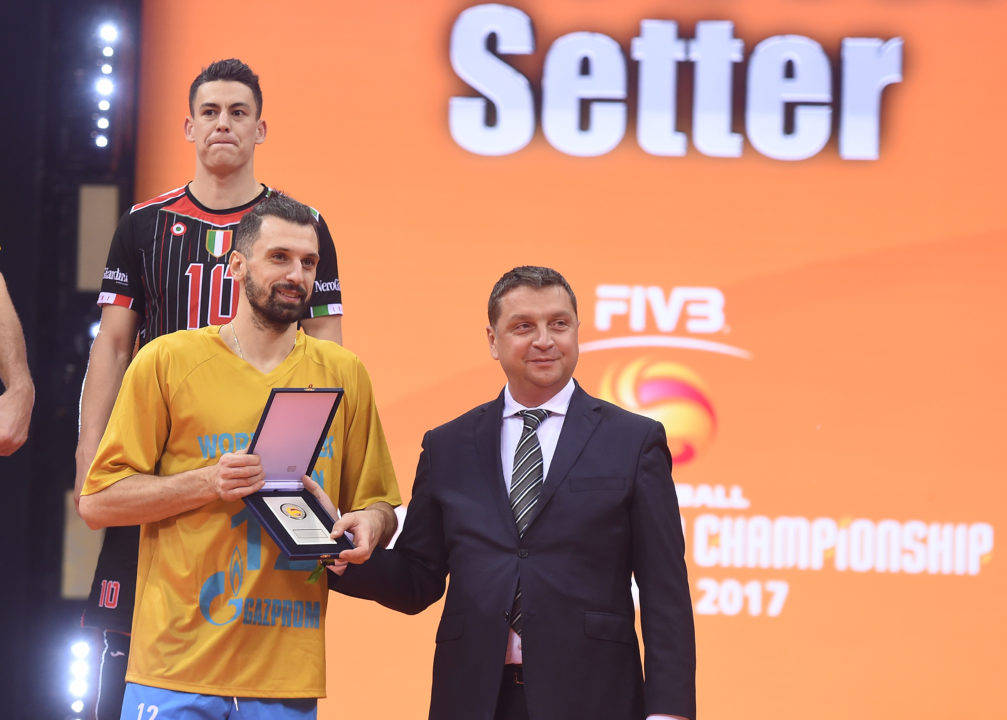2017 FIVB VOLLEYBALL MEN’S CLUB WORLD CHAMPIONSHIP
- December 12 – 17
- Lodz, Opole, Krakow – Poland
- Preview
- Teams
- Rosters
- Schedule
- Tournament Central
- Power Rankings
- Day 1
- Day 2
- Day 3
- Semifinals
- Finals
- Dream Team
Doping control procedures have been the cause of much discussion and controversy within the sporting community. One very recurrent topic of debate regarding the procedure itself is the fact that selected athletes must provide a valid urine sample right after the match ends. This would be an easy procedure if it didn’t go against basic human biology.
When participating in sports, the human body is controlled mainly by the sympathetic nervous system, responsible for enhancing blood flow to skeletal muscles and lungs, increasing heart rate, and generating energy. It just so happens that another function of this system is to constrict all the intestinal and urinary sphincters. When the action stops, it takes time for the body to adjust to its new state of activity. That is why athletes rarely have to use the bathroom when participating in their sport or right after play ends.
This is the reason why Zenit Kazan’s captain and tournament’s best setter Alexander Butko had to remain in the doping control room for about 4 hours after his team’s semifinal match against Sada Cruzeiro, only 24 hours away from the big final, according to WorldofVolley. Here is what he had to say about it:
“This is the first time that this happens to me. I drank a lot of water but I couldn’t do the procedure. As a result, I returned to the hotel after midnight, had dinner and immediately went to sleep. I had time to rest and this incident didn’t affect my game in any way.”
Butko was very classy about it, but incidents like this have been known to hinder athletes’ rest after important matches. Simply put, most athletes can’t just pee on demand, especially under such pressure. To learn more about doping control room procedures, please watch the video below:

Leave a Reply